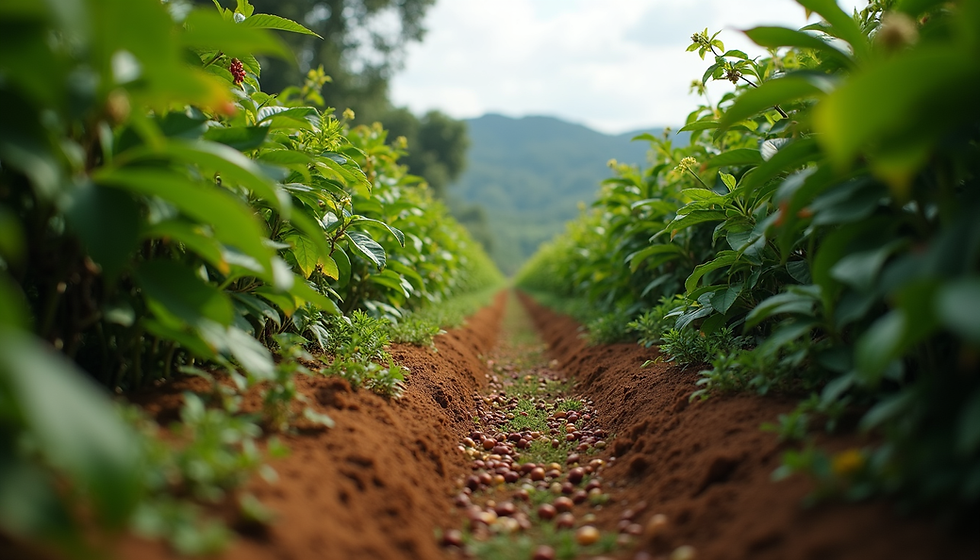Essential Tools Every Barista Needs to Master Their Craft
- Justin Cornelius
- Apr 1, 2025
- 4 min read
Becoming a skilled barista is not just about brewing coffee; it requires the right tools and techniques to perfect the craft. Whether you are a budding professional or a coffee enthusiast diving deep into the world of espresso and lattes, having the right barista tools is essential. This article will guide you through the must-have tools every barista should own, along with the skills necessary to wield them effectively.
Barista Tools: An Essential Guide
The range of barista tools available today is extensive. Selecting the right equipment can significantly affect the quality of the drinks you create. Here’s a list of essential barista tools that can elevate your coffee-making skills.
1. Espresso Machine
First and foremost, a quality espresso machine is vital for any barista. It is the heart of any coffee shop. This machine extracts rich flavors from ground coffee and offers a foundation for a variety of drinks, including espresso, cappuccino, and macchiato.

Investing in a high-quality machine can be expensive, but it pays off in consistent coffee flavor and quality. Look for units that come with built-in grinders for added convenience.
2. Grinder
Freshly ground coffee makes a significant difference in flavour. A reliable grinder will allow you to grind your beans to the proper consistency, which is crucial for espresso. Burr grinders are generally preferred over blade grinders due to their ability to deliver uniform grinds.

When choosing a grinder, consider factors like grind size adjustments, ease of use, and quality of construction. High-quality grinders can be expensive, but they are a worthy investment.
3. Tamper
A tamper is needed to compress the coffee grounds evenly in the portafilter.

Tamper usage may seem straightforward, but mastering the technique is important. Ensure you apply even pressure while tamping, as uneven tamping can lead to inconsistent coffee extraction. There are multiple variations on the available types of tamper, something we will discover more about in a future blog post.
What Type of Training Do You Need to be a Barista?
Becoming proficient in using these tools often requires formal training. Many aspiring baristas begin their journey with barista training programs. These programs cover everything from the basics of coffee brewing to advanced techniques in latte art.
Barista training provides you with a comprehensive understanding of coffee varieties, brewing methods, and customer service skills essential for success in a coffee shop environment. You can find numerous online and offline programs to help build a strong foundation in your barista skills.
4. Milk Frother
For drinks like lattes and cappuccinos, a milk frother is indispensable. It allows you to steam and froth milk to create velvety textures and foamy artistry. Both manual and automatic frothers are available, but a steam wand attached to an espresso machine is the most versatile option.

When frothing milk, pay attention to the temperature and texture. Ideally, you want the milk to reach about 150-155°F for the best flavour and consistency.
5. Thermometer
Maintaining the right temperature is crucial in coffee brewing and milk steaming. A thermometer helps you measure temperatures accurately, ensuring you do not scald the milk or brew coffee that is too hot.
Using a thermometer may seem simple, but it aids in honing your skills. Aim for espresso shots brewed at around 190-205°F, while milk should be steamed to about 150-155°F.
6. Scale
Precision is key in brewing coffee. A digital scale allows for exact measurements of coffee grounds and water, leading to consistency. Weighing your coffee-to-water ratio should become second nature as you practice.
Investing in a quality digital scale can ensure you brew the perfect cup every time. Aim for a coffee-to-water ratio such as 1:15 or 1:17, depending on preference and brewing style.
7. Cleaning Tools
Keeping your tools and workspace clean is essential for quality coffee making. Having brushes, cloths, and cleaning tablets on hand will help maintain your equipment and ensure great tasting coffee.
Regular cleaning helps remove coffee oils and residues that can alter the flavor of your drinks. Schedule cleaning routines into your workflow to maintain your equipment's longevity.
8. Recipe Book or Notebook
As you practice, keeping a recipe book or dedicated notebook can be invaluable. Record the coffees you brew, techniques you experiment with, and feedback on your drinks. This documentation can help you improve over time.
Consider documenting specific ratios and brewing times to refine your style. With enough practice, you'll develop a unique spin on your beverages that will impress customers.
Final Thoughts on Barista Tools
Mastering the art of coffee-making is a rewarding journey that requires the right tools and training. By equipping yourself with quality barista tools like an espresso machine, grinder, and milk frother, you set yourself up for success.
So whether you're looking to start your career in a thriving coffee shop or simply wanting to impress your friends with a delicious cup at home, remember that each tool serves a purpose. The right equipment, combined with practice and experience, can lead you to become the barista you've always wanted to be.
By investing in the necessary tools and possibly participating in barista training programs, you will build a solid foundation for your coffee-making career. Explore different brands and models, and don’t hesitate to invest in your craft. Happy brewing!




Great guide! The right tools really do make all the difference. I’ve been practicing my pour-over technique lately especially with some freshly ground Honduras coffee. It’s amazing how much flavor the right setup can unlock!